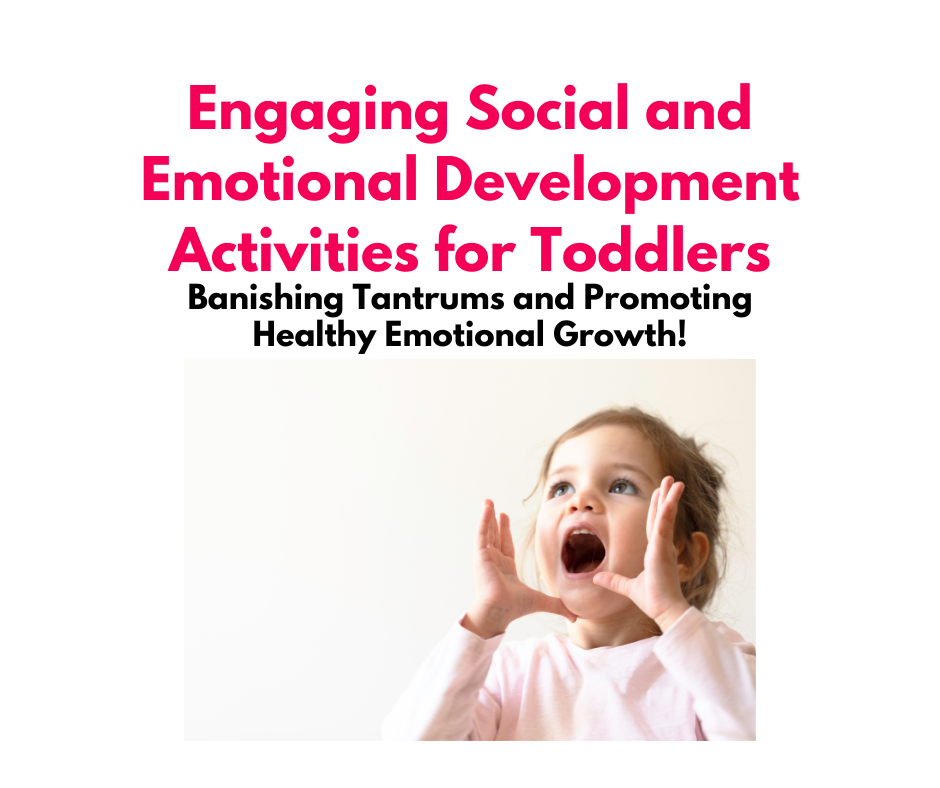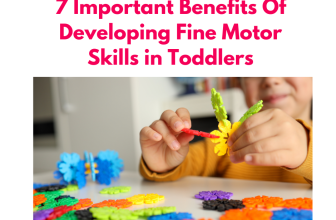
Unlock your toddler’s potential with engaging social and emotional development activities! Say goodbye to tantrums and hello to healthy emotional growth. Get ready to embark on an exciting parenting adventure with our expert-backed tips and activities. Start your journey now!
Are you ready to dive headfirst into the wild world of social and emotional development activities for your lively 2-3 year old? Buckle up, because we’re about to embark on a thrilling journey that’ll make your parenting adventure a whole lot smoother!
You know those moments when your little angel turns into a tiny tornado, unleashing epic tantrums that leave you feeling like you’ve entered a chaotic warzone? Trust me, I’ve been there too, and I get it. The frustration, the confusion, the constant worry about whether you’re doing enough to nurture their emotional growth—it can be overwhelming.
But fear not, because we’re about to unleash a treasure trove of proven activities that will banish those tantrums, empower your child’s social skills, and lay the foundation for healthy emotional development. Say goodbye to the days of desperate googling, my friend. We’ve got your back!
So, let’s make a pact to transform those challenging moments into opportunities for growth. Let’s discover engaging activities that will have your toddler laughing, learning, and thriving. Together, we’ll navigate the winding paths of emotional intelligence, building a strong bond that will withstand any storm.
Are you ready to unleash the superhero within your little one? Then grab your cape, strap on your mom-power boots, and let’s dive into the world of social and emotional development activities that will shape your child’s future. It’s time to embark on this exciting adventure together! Let’s go!
Unlocking the Power of Play: Fresh Ideas for Social and Emotional Development Activities for 2-3 Year Olds
As parents, we strive to provide our 2-3 year olds with a solid foundation for social and emotional development. By engaging in purposeful play and introducing innovative activities, we can help them navigate the exciting world of emotions. In this article, we will explore a range of fresh and creative ideas designed to foster social skills and emotional intelligence in our little ones. Plus, we’ll suggest some fantastic products available that can enhance the experience!
Building a Foundation of Emotional Vocabulary:
At this age, toddlers are beginning to grasp the complexities of their emotions. To expand their emotional vocabulary, incorporate fun and interactive games into your daily routine.
Play “Emotion Charades” by acting out different feelings and encouraging your child to identify and mimic them. Picture books with expressive illustrations are also fantastic tools to spark conversations about emotions.
As you read together, ask questions like, “How do you think the character feels?” and “Have you ever felt that way?”
Exploring Emotions with Sensory Play:
Sensory play offers a hands-on approach to emotional exploration. Create an “emotions sensory bin” by filling a container with materials like colored rice, feathers, and textured fabrics. Add facial expression cards, and encourage your child to sort and match them to the corresponding emotions they feel.
To enhance this activity, consider incorporating these Family Counters, which includes diverse family figures representing different emotions.
Storytelling with an Emotional Twist:
Expand your child’s emotional vocabulary through imaginative storytelling. Choose picture books that explore a wide range of feelings and emotions. As you read together, encourage your child to identify and express the emotions experienced by the characters.
This Book of Feelings is an excellent choice, with its captivating illustrations and interactive pop-up elements.
Engaging in Empathy-Building Activities:
Empathy is a powerful skill that fosters meaningful connections with others. Encourage empathy development by engaging your child in imaginative play. Set up a pretend play scenario, like a doctor’s office or a grocery store, where they can take on different roles. This allows them to step into someone else’s shoes and understand how others may feel. Ask questions like, “How do you think the teddy bear feels when it’s sick?” or “What can we do to help?”
Also Read – Raising Kind Kids: Expert Tips for Developing Empathy in Children
Cultivating Emotional Regulation through Mindful Moments:
Toddlers often experience intense emotions that can be challenging to manage. Introduce simple mindfulness exercises to help them calm their minds and bodies. Practice deep breathing together by taking slow breaths in and out, emphasizing the importance of finding their inner calm. Create a cozy “calm-down corner” in your home where your child can retreat when feeling overwhelmed. Fill it with soft pillows, comforting objects, and perhaps a sensory jar filled with glitter. Encourage them to spend a few moments in this peaceful space to regain their composure.
Encouraging Cooperative Play and Turn-Taking:
Cooperative play is a fantastic way to develop social skills and teach the value of sharing and turn-taking. Engage your child in group activities such as building block towers together or playing a simple board game. Encourage them to take turns and share resources, fostering patience and cooperation. Celebrate their efforts and highlight the importance of teamwork, emphasizing that everyone’s contributions matter.
Using Art and Music as Expressive Outlets:
Art and music provide powerful avenues for self-expression and emotional exploration. Encourage your little one’s creativity by engaging in collaborative art projects. Create a mural together using washable paints or explore different textures and materials through sensory art.
Music, too, can evoke a range of emotions. Have dance parties, sing-along to favorite songs, or introduce them to various musical instruments. These activities allow your child to express themselves freely and develop a deeper connection with their emotions.
Promoting Positive Reinforcement and Recognizing Efforts:
As your child engages in social and emotional development activities, remember to provide positive reinforcement and acknowledge their efforts. Celebrate their progress, no matter how small, and praise their attempts at expressing and managing their emotions.
A simple “You did a great job sharing with your friend” can work wonders in boosting their confidence and motivation.
Also Read – Boost Your Child’s Confidence: 100 Creative Ways to Praise Your Little One
Yoga Adventures:
Introduce your little one to the world of yoga through playful and engaging yoga adventures. Use animal-themed poses to spark their imagination and encourage body awareness. Consider using these Yoga Cards for Kids to guide the yoga session. These colorful cards feature kid-friendly illustrations and easy-to-follow instructions, making yoga a delightful and beneficial experience.
Emotional Puppet Theater:
Bring emotions to life with a homemade puppet theater. Help your child create puppets using socks, felt, or paper bags, and design expressive faces to represent different emotions. Together, create short skits where the puppets experience various feelings and navigate through different scenarios. This activity promotes empathy, creativity, and problem-solving skills.
Emotion Charades
Put a twist on the classic game of charades by focusing on emotions. Write down different emotions on slips of paper and place them in a jar. Take turns acting out the emotions without using words, and have your child guess the emotion being portrayed. This game encourages your child to recognize and interpret facial expressions and body language.
Building Emotional Memory with Music:
Create a personalized playlist featuring songs that evoke different emotions. Listen to the songs together and discuss the feelings and memories they bring up. Encourage your child to dance, move, or draw while experiencing each song’s emotional journey.
Gratitude Journals:
Introduce the concept of gratitude by helping your child create a simple gratitude journal. Each day, invite them to draw or dictate something they are thankful for. Encourage them to reflect on positive experiences, acts of kindness, or things that make them happy.
The My First Gratitude Journal is a wonderful resource to guide them through this process.
Building Self-Awareness through Mirror Play
Set up a child-safe mirror and engage in mirror play activities with your child. Encourage them to make different facial expressions and observe themselves in the mirror. Ask questions like, “Can you show me a happy face?” or “How does your face look when you’re feeling surprised?” This activity helps develop self-awareness and emotional recognition.
Emotion Sorting Game:
Create emotion cards with various facial expressions and lay them out on a table. Help your child identify and name each emotion. Then, ask them to sort the cards into categories based on similar feelings.
You can use these Emotion Stones, which are tactile stones featuring different emotions, to enhance the sorting game. This activity helps children recognize and differentiate between different emotions.

Mindfulness Walks:
Take your child on mindful walks in nature or around your neighborhood. Encourage them to notice and describe the sights, sounds, and smells around them. Use this time to talk about different emotions they may experience during the walk and how their surroundings make them feel. This activity promotes mindfulness, sensory awareness, and emotional self-reflection.
Collaborative Art Projects:
Engage in collaborative art projects where you and your child create artwork together. Use different art materials, such as paints, markers, or clay, and encourage your child to express their emotions through their artwork. Talk about the colors, shapes, and lines they use and ask them to explain the emotions behind their creations. This activity fosters creativity, communication, and emotional expression.
Also Read – Toddler Painting Ideas and Activities – Your complete guide to get started
Remember, each child is unique, and not every activity may resonate with them. Pay attention to their interests and preferences, and adapt the activities to suit their developmental level. The key is to create a nurturing and supportive environment where they feel comfortable exploring their emotions.
Here are answers to some of the most frequently asked questions from parents regarding social and emotional development activities for 2-3-year-olds:
How can I help my child develop empathy at this age?
Encourage activities that involve role-playing, storytelling, and discussions about emotions. Model empathy in your own interactions and teach your child to consider others’ feelings through gentle reminders and guidance.
How do I teach my child to manage their emotions?
Provide a safe and supportive environment where your child can express their emotions. Offer simple strategies like deep breathing or using words to express their feelings. Engage in activities that promote self-regulation, such as calming exercises or engaging in sensory play.
What are some ways to promote social skills in my child?
Engage in playdates or group activities where your child can interact with peers. Encourage sharing, taking turns, and practicing good manners. Use picture books or visual aids to teach social skills like greetings, listening, and problem-solving.
How can I help my child develop resilience?
Foster a growth mindset by praising effort and perseverance rather than focusing solely on outcomes. Encourage problem-solving and resilience-building activities such as puzzles, building blocks, or simple obstacle courses. Offer support and guidance during challenging situations to help them learn from setbacks.
Are there any specific activities to boost self-confidence in my child?
Provide opportunities for your child to make choices, solve problems independently, and accomplish age-appropriate tasks. Praise their efforts and celebrate their achievements, no matter how small. Engage in activities that highlight their strengths and encourage positive self-talk.
How can I teach my child about emotions and their expressions?
Use books, flashcards, or emotion charts to help your child identify and name different emotions. Play “emotion charades” where you or your child acts out different feelings, and have discussions about what might cause those emotions. Encourage empathy by asking how they would feel in certain situations.
Can technology be used for social and emotional development activities?
Yes, in moderation and with appropriate content. Choose interactive and educational apps or online resources that promote emotional literacy, social skills, and empathy. Ensure screen time is balanced with real-world experiences and face-to-face interactions.
What role does imaginative play have in social and emotional development?
Imaginative play allows children to explore different roles, emotions, and social situations. Encourage pretend play with dolls, action figures, or stuffed animals. Join in their play to model social interactions, problem-solving, and empathy.
How can I support my child’s social and emotional development at home?
Create a nurturing environment with consistent routines, clear boundaries, and positive reinforcement. Engage in activities that promote emotional expression, communication, and cooperation. Encourage open conversations about feelings and validate their emotions.
Embrace the Journey, Empower Your Child
You’ve come a long way on this journey of nurturing your child’s social and emotional development. From exploring emotions through sensory play to engaging in heartfelt conversations, you’ve shown dedication and love. It’s natural to feel a mix of emotions—excitement, uncertainty, and even moments of self-doubt. But let me tell you, dear parent, you’re doing an incredible job!
In the hustle and bustle of daily life, it’s easy to overlook the profound impact these activities can have on your child’s growth. You might sometimes wonder, “Am I doing enough?” or “Are these efforts truly making a difference?” Rest assured, those questions are only proof of your unwavering commitment and the deep love you hold for your little one.
Through our exploration of fresh and innovative ideas, we’ve witnessed how purposeful play and intentional engagement can shape your child’s social skills and emotional intelligence. From the joy of yoga adventures to the transformative power of storytelling, you’ve discovered the keys to unlocking their potential.
Imagine the impact these activities will have as your child gains a deeper understanding of emotions, cultivates empathy, and builds resilience. Picture them confidently navigating relationships, expressing themselves authentically, and embracing the world with open hearts. The seeds you’re planting today will blossom into a future filled with compassion, empathy, and emotional well-being.
So, dear parent, take a moment to acknowledge your incredible role in shaping your child’s journey. Embrace the highs and lows, knowing that each step you take brings you closer to witnessing their growth. Celebrate the laughter, the curiosity, and the small victories along the way.
As you continue to infuse play and intentional activities into their lives, remember that you’re not alone. Draw strength from the community of parents who share this beautiful journey. Reach out for support, exchange ideas, and celebrate the milestones together. We are all on this extraordinary path, striving to give our children the best possible start in life.
Now, with your heart full of hope and inspiration, go forth and empower your child through play, creativity, and meaningful connections. Together, let’s create a world where social and emotional intelligence flourishes, where our little ones grow into confident and compassionate individuals.
Stand tall, dear parent, for you are making a difference—a difference that will echo through the generations. Give yourself a well-deserved standing ovation. Embrace the joy of this remarkable journey and cherish every moment. Your child’s bright future awaits, and you are their guiding light.
Now, go and continue to unlock the power of play, igniting a world of infinite possibilities for your child’s social and emotional growth.







